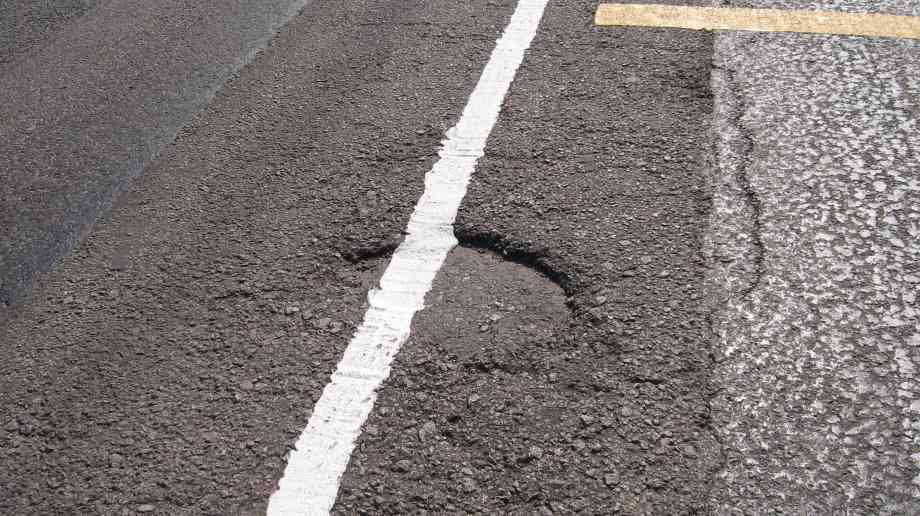Sue Robb of 4Children talks to Julie Laughton and Alison Britton from the Department for Education about the role of childminders in delivering the 30 hours free entitlement.
Data shows that pothole breakdowns are on the rise

New RAC breakdown data has revealed that patrols attended 20 per cent more pothole breakdowns in the last quarter of last year, compared to the same period the year before.
Additionally, the RAC found that drivers are still more likely to break down as a result of a poor-quality roads today than in 2006. The organisation’s orange patrols attended more than 2,000 breakdowns that are likely to be attributed to potholes in the three months to the end of 2019 – 300 more than during the same period in 2018.
Released to coincide with National Pothole Day, the data shows that, between October and December 2019, 0.9 per cent of all breakdowns were for pothole-related faults, up from 0.8 per cent in the previous three months (July to September 2019) and up from 0.8 per cent in the fourth quarter of 2018. Of all the breakdowns experienced by the RAC’s individual members last year, 9,200 were for pothole-related faults such as distorted wheels, broken suspensions springs and damaged shock absorbers.
The RAC’s Pothole Index, which is an accurate long-term indicator of the health of the UK’s roads, suggests the widespread problem of potholes and poor-quality roads remains as the Index currently stands at 1.7, down from 1.8 in the third quarter of 2019. This means drivers are 1.7 times more likely to break down as a result of pothole-related damage than they were back in 2006 when the RAC first started collecting data.
Nicholas Lyes, RAC head of roads policy, said: “Our figures clearly show the problem of potholes has not gone away. Our patrols are still attending on average around one pothole-related breakdown every hour of the day. We anticipate the government will pledge further funds to help cash-strapped councils mend potholes in the March Budget, but such pledges are only chipping away at the problem, and they’re unfortunately not addressing the root cause of why so much of the UK is still characterised by crumbling road surfaces.
“What we need is for central government to think differently about how councils are funded to maintain the roads under their control. Short-term commitments of cash, while welcome, are not enough on their own – councils need the security of long-term funding so they can plan proper preventative road maintenance.
“A solution to the UK’s long-term pothole problem is possible. From this year, the money raised from vehicle excise duty in England will be ring-fenced to help fund motorways and major A-roads over successive five-year periods. But as yet, there is no similar model for local roads where the vast majority of drivers begin and end their journeys. We believe this could easily be changed by ring-fencing 2p a litre from existing fuel duty revenue to generate £4.7 billion of additional funding over five years. Pothole-free roads shouldn’t be a ‘nice to have’ in 2020, drivers should surely be able to expect the vast majority of roads they drive on to be of a good standard, especially given they pay around £40 billion in motoring-related tax every year.”
David Renard, the Local Government Association’s transport spokesman, said: “Councils are on the side of all road users, fixing a pothole every 17 seconds, and want to work with government to tackle our national road repairs backlog, which will take more than £9 billion and a decade to complete. Providing councils with funding in the forthcoming Budget would mean they can invest in road maintenance and other infrastructure projects.”
Company Focus
The Isuzu D-Max is a rugged workhorse that can fulfil a myriad of purposes as both a business and personal vehicle. Consequently, the D-Max is a particularly popular choice when it comes to farming, construction, and trade industries. Uncompromising in nature, the D-Max strives to be the ideal companion for many business needs.
Event Diary
UKREiiF has quickly become a must-attend in the industry calendar for Government departments and local authorities.
The multi-award-winning UK Construction Week (UKCW), is the UK’s biggest trade event for the built environment that connects the whole supply chain to be the catalyst for growth and positive change in the industry.
Supplier Profiles
Geo Energy
At GeoEnergy Design, we're on a mission to disrupt the traditional way heating and cooling ha
Latest Features
Professor Harith Alani, director of the Knowledge Management Institute at the Open University explains how AI can be used for good and bad.
Alex Lawrence, head of health & social care, techUK sets out techUK’s Five Point Plan for CareTech.

















